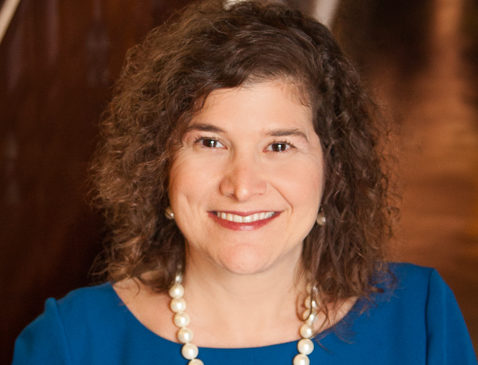Alison Alter relishes academic approach to government
Friday, December 28, 2018 by
Jack Craver Two years into her tenure on City Council, District 10 Council Member Alison Alter said she remains focused on the reasons she ran for the seat against former Council Member Sheri Gallo.
“I didn’t run as a political insider, nor because I craved the spotlight,” she said in an interview with the Austin Monitor at her City Hall office. “I ran because I wanted to create solutions to the problems I saw around the city.”
“I’m an academic at heart,” Alter added. “I don’t come to the issues with my mind made up. I really look at the data. I’m not an ideologue. I think in today’s politics it’s important to know that. I do my analysis based on facts and the details. I tend to ask a lot of hard questions.”
It was this academic-driven approach that led Alter to focus on the city’s contracts with the firefighter and police unions. Alter was a vocal proponent of making changes to overtime rules for firefighters that were ultimately implemented in the contract Council approved in September 2017.
Throughout the past year, Alter pushed for the city to negotiate a contract with the police union that would include stronger oversight provisions and smaller pay increases. After 10 months of butting heads with the police union, Council approved a contract in October that largely fulfilled those goals, said Alter.
“We have the most fiscally sound and progressive police contract in the state, if not the country,” she said.
The police contract “set us up on track for financial stability” and allowed the city to spend money hiring more police officers, Alter said. The 2018-19 budget that Council approved in September included 33 new cops.
Alter was happy with other investments included in the budget, such as parent support specialists for the Austin Independent School District, two new victims’ counselors and funds for pool repairs. She was particularly pleased to get funding for the parks department to place recycling bins in every park. Last year, Alter took money from her own office budget to put bins in several parks in her district.
In search of additional long-term savings for the city, Alter has been pushing for the city to buy, rather than rent, property for its facilities. “Over time it costs us more to lease,” she said. Austin Energy has estimated that it will save $30 million over 30 years by moving employees from three rented offices downtown to a new, $150 million facility that AE will own in Mueller.
Alter was an enthusiastic proponent of reallocating Hotel Occupancy Tax revenue from Visit Austin and the Austin Convention Center to historic preservation efforts. Similarly, she said that the city should “reinvent the way we think about the convention center” to integrate other uses for the downtown facility besides trade shows. She highlights the inclusion of local arts and food at the airport as a model.
“It needs to be part of the community and not a dead zone downtown,” she said of the convention center. “It needs to serve Austin and not just the conventiongoers.”
While she often votes against controversial developments and was a supporter of Prop J, the unsuccessful ballot initiative led by anti-CodeNEXT activists, Alter stressed that she is not against increasing housing supply. She believes that her position is misinterpreted due to a lack of appreciation for the nuances of housing policy and argues that simply increasing entitlements on properties to allow more units will not lead to greater affordability.
“It’s not as simple as it sounds,” she said.
Alter is committed to saving Lions Municipal Golf Course, whose future is threatened by its landlord, the University of Texas, entertaining the prospect of leasing or selling it to a more profitable tenant, such as a residential or commercial developer. Calling the property “the lungs of West Austin,” Alter said that there may be “future opportunities” to open up the land to more people by using it for recreation besides golf.
Asked what she thinks of city government after two years on the job, Alter said she continues to be inspired by “how much the city affects people’s lives,” highlighting the bombing crisis this spring and the water-boil order in the fall as examples of city agencies responding to critical threats to people’s lives.
“We live in very interesting times,” she said. “We have to understand that we do really good things at the local level.”
Photo courtesy of the city of Austin.
The Austin Monitor’s work is made possible by donations from the community. Though our reporting covers donors from time to time, we are careful to keep business and editorial efforts separate while maintaining transparency. A complete list of donors is available here, and our code of ethics is explained here.
You're a community leader
And we’re honored you look to us for serious, in-depth news. You know a strong community needs local and dedicated watchdog reporting. We’re here for you and that won’t change. Now will you take the powerful next step and support our nonprofit news organization?







